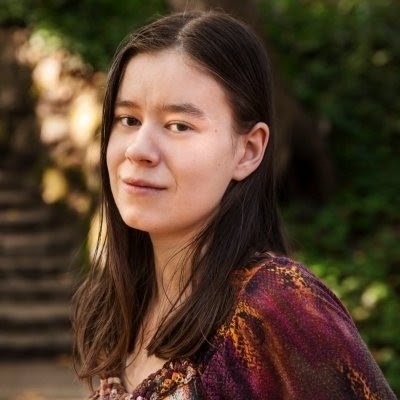Alumni Spotlight: Danielle Parenteau-Decker

By Rebecca Schupp
Danielle Parenteau-Decker grew up reading the Los Angeles Times but she never imagined that her first full-time job after receiving her graduate degree from UC Berkeley would be for the venerable newspaper. Joining the publication was like a dream come true for her.
Now, after two years as a copy editor there, she is ready to move back to the Bay Area to become the new managing editor of the Richmond Pulse, a community news and media outlet in the East Bay city.
The 28-year-old journalist graduated from San Francisco State University with a bachelor’s degree in journalism in 2015. Parenteau-Decker thought she wanted to go straight into the workforce, but when she was applying for jobs during her senior year, she also started reading about grad programs and decided to enroll in UC Berkeley’s Graduate School of Journalism.
As she was getting ready to graduate she applied for the Metpro fellowship at the Los Angeles Times in 2017, which ended up converting into a full-time position in 2019.
The fellowship is a two-year training program to teach journalists different disciplines across the newsroom. After a few weeks of initial training, each fellow gets placed in the department they applied for.
One thing Parenteau-Decker will always remember about her time at the newspaper was the formation of the LA Times Guild. In October journalists ratified the first collective bargaining agreement in the newsroom’s 138-year history.
Parenteau-Decker was first exposed to a newspaper guild in 2014, when she interned with Bay News Rising, a project of the Pacific Media Workers Guild. While there, she published a moving essay about her family’s experience with poverty. At the time, she and her mother lived in a 100-square-foot single-room occupancy hotel room in downtown San Francisco and got by on about $14,000 per year.
In the article, she said that she always pushed herself in school because she knew an education was the most likely way she could pull her family out of poverty. She wanted to help break the stereotype that being poor means something is wrong with you.
“I chose journalism,” she said, “because I wanted to be able to give a voice to other people out there who are feeling like nobody cares about them, nobody understands their struggles or what they're going through.“
Now, Parenteau-Decker is making around $60,000 a year and is the sole provider for herself and her mother, who lives with her. She looks forward to moving back to the Bay Area with her mother to continue her career.
Her story shows that anything is possible if you work hard and don’t let stereotypes stop you from being successful and achieving your goals.